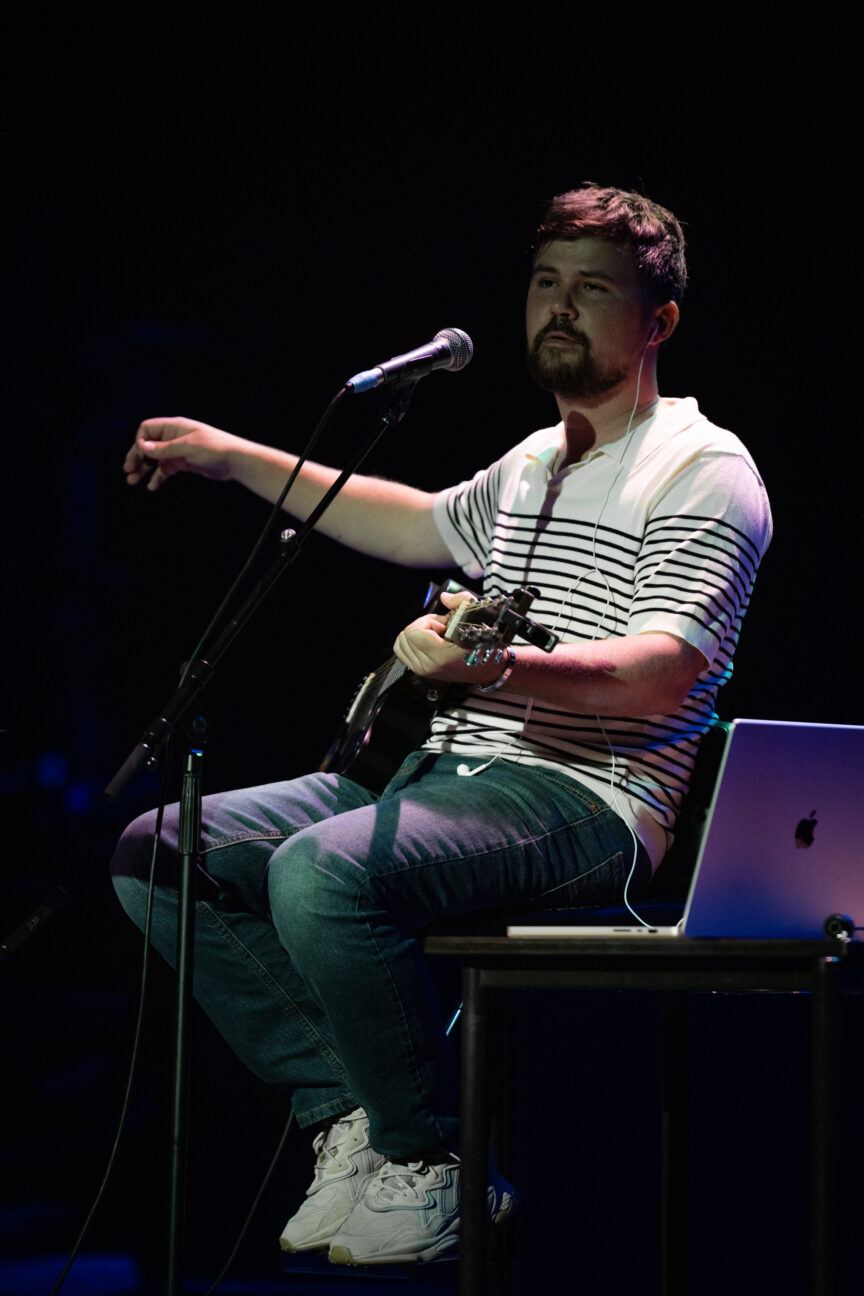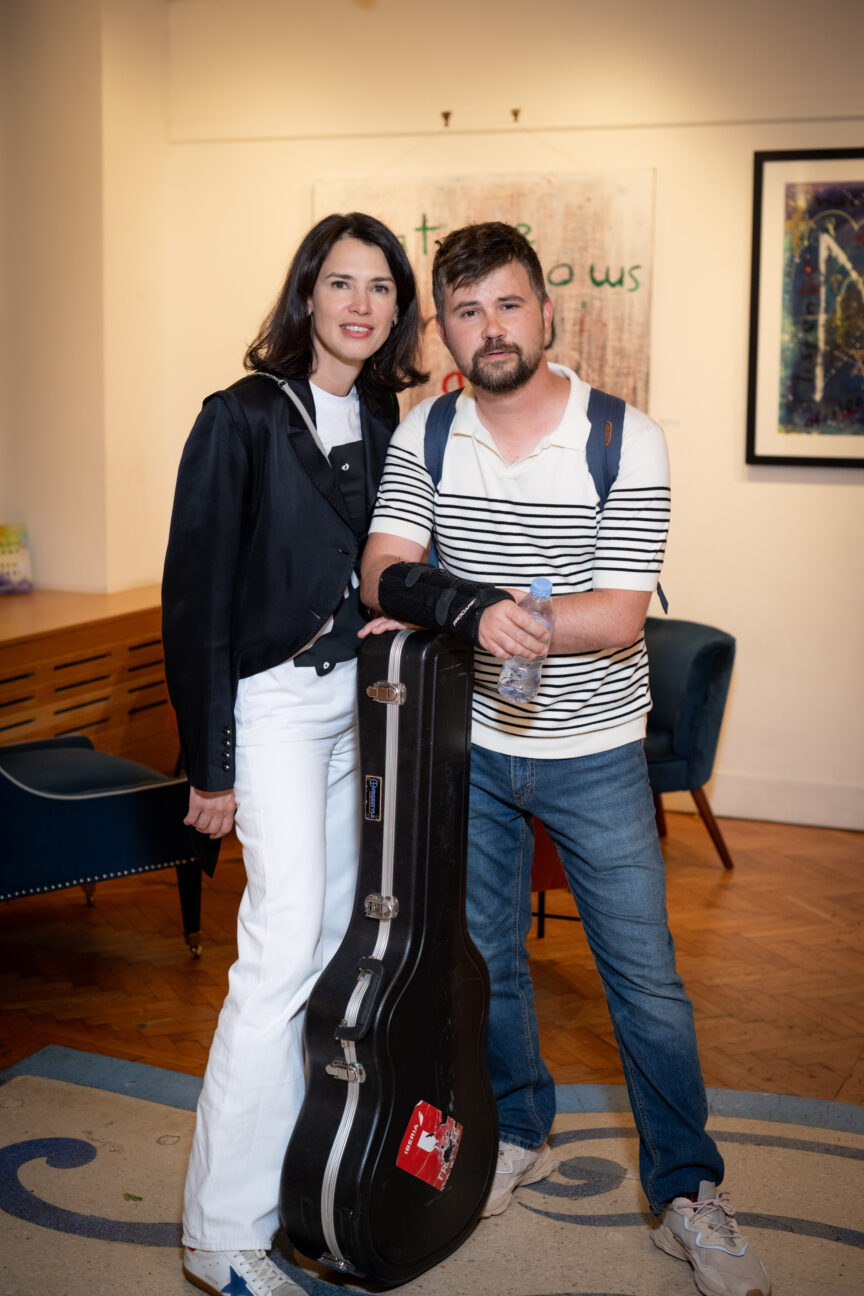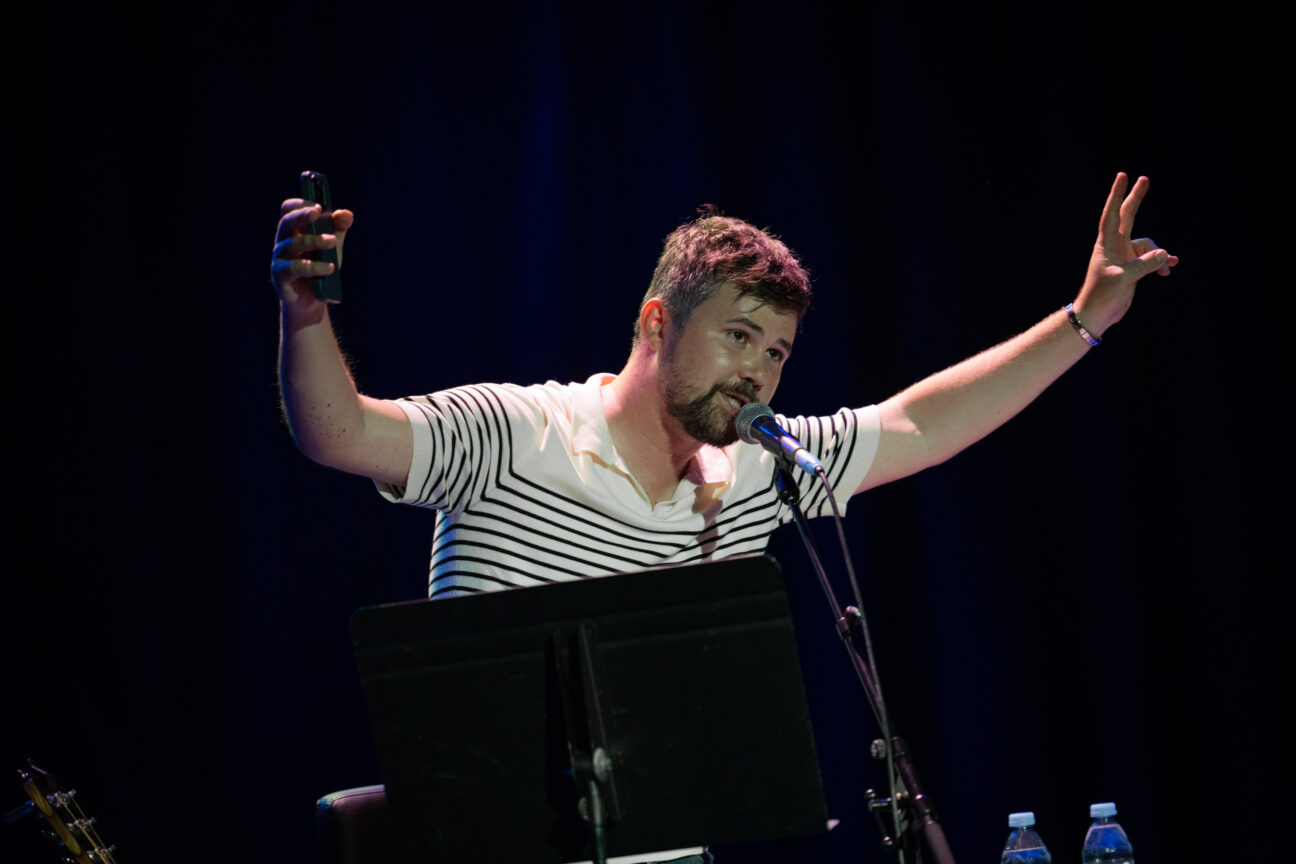Nestled in Marylebone stands one of London’s most remarkable edifices, both historically and architecturally—Rudolf Steiner House. Constructed in the expressionist style, it has served as the center of the Anthroposophical Society in Britain for nearly a century. Within its walls, alongside a library, society’s operational rooms, auditoriums, and a café, lies a theater hall that, on June 29th, played host to a concert by the project Vasya Oblomov (Vasily Goncharov).
‘We Might Not Repeat’—Vasya Oblomov

Performing in such a venue is an event in itself, but Vasya Oblomov is an ‘event’ too—a non-conformist and a socio-cultural phenomenon in Russian music scene (neither strictly pop nor rock, his work occupies an abstract cultural landscape). As a poet-songwriter, his “odes to the issues of the day” have earned him the reputation of an ‘internet sensation’ and titles like ‘representative of a new generation of musicians.’ Through accessible musical forms, Vasya Oblomov critiques official (mass) culture, social norms, and the political system. His texts, invariably laced with irony and sometimes self-irony, are instant reactions to current affairs.
At an event in the Steiner House, it would have been surprising not to cross paths with Boris Grebenshchikov of the Aquarium band, yet his presence specifically at Vasya Oblomov’s concert was rather unexpected: their approaches and views on music production stand in stark contrast—different as a daily tabloid is from Steiner’s How to Know Higher Worlds. ‘So there really is something in the boy,’—a gag popular across the Russian internet during Vasya O’s initial creative strides in the early 2000s. He took the stage to Shostakovich’s overture The Fall of Berlin—rather an unconventional choice for an ‘online bard.’

Vasya Oblomov’s performance was a monologue play interspersed with musical themes: between songs, he devoted considerable time recounting the stories behind their creation, sharing memories, and seasoning them with jocular punchlines in the style of Stand-up comedy. These interludes, though at times unexpected and eliciting laughter from the audience, occasionally felt overplayed. However, Vasya Oblomov did not shy away from the rehearsed nature of his anecdotes, requesting the audience refrain from recording them on video, ‘so that others can laugh too.’
The concert was structured into several segments: beginning with a series of lyrical compositions, transitioning into a set of ‘my favourite silly songs, which also pay more,’ followed by a cycle from the Citizen Poet project, and culminating in a selection of hits such as Magadan, Mnogohodovochka, and Our People Love All Kinds of Shit (shit being a word the author himself apparently loves and frequently employs).

Vasya Oblomov’s lyrics present a duality of stream of consciousness and a mosaic of stylistic techniques—from slang, newspaper clichés, and obscene language to officialese and literary allusions. Yet, throughout the show, there was a persistent sensation that the simple rhymes, basic harmonies, limited chord set, and always predictable song structures are a semantic game behind a mask of marginality, a game whose rules the author, for some inexplicable reason, cannot alter. These rules seemed to dominate him, holding captive, much like the public’s memory holds the simple melodies and rhymes of the tunes. Perhaps the most sincere and vital element of the entire performance was the radiation of irrepressible optimism despite grievances, stupidity, dissatisfaction, ‘in spite of everything’—resilience as a civic stance, a typically national trait that is heartening to observe in various incarnations time and again.





